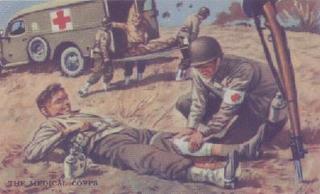
According to Word Detective
…the whole story begins with the classic American traveling carnival. Back
in the early 19th century, the arrival of such a carnival in a small town was a
major occasion, affording the town's residents the opportunity to sample all
sorts of exotic attractions, from the grotesque denizens of the sideshow to wild
beasts from Africa and Asia that many people at that time had only read of in
books. The big draw at many of these shows was an elephant, a far bigger and
stranger critter than any animal native to North America, and to go to the
carnival without "seeing the elephant" would be like going to the Ohio State
Fair without seeing the Butter Cow. (Yes, it's a life-size cow sculpted from
butter, sort of a giant advertisement for bypass surgery.) So ritualized was
this small-town pachyderm-mania that by about 1835 "to see the elephant" had
become a catch phrase meaning "to experience all that there is to see, to see
all that can be endured," with the sense that after having "seen the elephant"
there was nothing left to see. A related, more general sense arose a few years
later, in which "to have seen the elephant" meant "to be worldly, no longer
innocent, to have learned a hard lesson." Many young people of the day who left
the country for the big city with stars in their eyes only to experience
hardship and disappointment were wryly said to have "seen the elephant" in this
sense. And by about 1840, "see the elephant" had acquired the specialized
military sense you have heard, meaning "to experience combat for the first
time," with the brutal loss of innocence that ordeal conveys

1 comment:
Great Post -- Thanks for the info!
Post a Comment